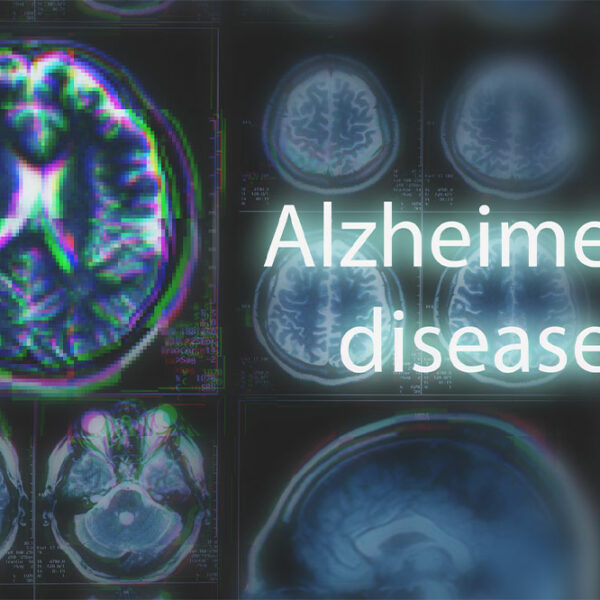10 Early Signs of Alzheimer’s Disease
Alzheimer’s, a common cause of dementia, is a progressive neurodegenerative disease that affects about 50 million people in the world. The condition is common among older adults, however, younger people can also be at risk of developing early-onset Alzheimer’s. The disease affects the brain cells, and over time, cognitive impairment, memory loss, and other signs of brain decline can be observed. Recognizing early signs of Alzheimer’s can help one manage the condition better.

Confusion
This is a common Alzheimer’s sign that can make people affected by the disease lose track of time or remember which season it is. People may also experience issues in understanding directions and locations, making it difficult to follow a path to their destination or comprehend how close or farther away things can be.
Compromised vision
The disease affects one’s eyesight and makes it difficult for patients to differentiate between colors. Driving can become off-limits due to issues in judging the distance and determining contrast.
Issues with perception
In the initial stages, patients can experience trouble judging the distance between two things or places. The patient’s compromised vision also makes it difficult for them to perceive depth and distance.
Memory loss
One of the most recognizable Alzheimer’s signs is experiencing varying degrees of memory loss. The most common incidence of memory loss is noted when patients tend to forget dates and events. Another early sign is repeatedly inquiring about the same thing and asking the same questions over and over again. This can be accompanied by the need to seek assistance from family and friends to handle things. As the disease progresses, patients might need to use memory aids like notepads, calendars, and electronic devices to send them reminders and help them keep track of everything.
Difficulty completing tasks
Changes in the patients’ cognitive ability and concentration can make it difficult for them to complete tasks. The inability to keep up and carry out daily tasks is one of the early Alzheimer’s signs observed in patients. Dealing with tasks that require the patient to employ their critical thinking ability is particularly challenging. For instance, one may forget their way back when out on a walk or running errands. They might find it difficult to follow steps or even recipes. Additionally, the patients can gradually lose their ability to solve problems.
Impaired speech
Patients can find it difficult to join a conversation or find the right words to contribute to the discussion. People with Alzheimer’s might constantly repeat themselves. They may also lose their train of thought and can stop talking in the middle of a conversation.
Issues with logical reasoning
The disease induces changes in people’s logical reasoning and thinking abilities, which can affect their personal and professional life. Tasks like routine planning and dealing with numbers can become challenging. With the advancement of the condition, one will even find it increasingly hard to maintain concentration, make decisions, and keep up with the daily routine. As the condition hits the brain’s problem-solving center, patients have to depend on other people to balance their checks and handle other accounting needs that require the use of numbers.
Psychological changes
A clear sign of this illness is the onset of psychological changes in one’s personality and mood. Patients may get increasingly suspicious, anxious, depressed, and even fearful of their surroundings. This can even extend to people they have known for a long time, like family and friends. People may get agitated or upset by their own imagination. Further, Recognizing their own symptoms can also add to the anxiousness, and changes in their routine also make them more irritable.
Poor judgment
Another common Alzheimer’s sign is poor judgment and decision-making. People with the disease can be seen taking questionable and out-of-character calls that they would not have under normal circumstances or in the past. This can be particularly problematic when the decision-making is related to matters of their health and finances. The inability to make sound judgments might even impact their ability to take care of themselves leading to poor hygiene, disheveled appearance, and erratic grooming.
Withdrawal
People can withdraw themselves from work and other activities. A common Alzheimer’s sign, this can affect their projects, hobbies, sports, and social activities. Other symptoms like difficulty keeping up with conversations, contributing to discussions, and carrying out routine tasks can add to the frustration, making people with Alzheimer’s lose interest in the interactions and hobbies they had once enjoyed. One may also begin to avoid social settings and isolate themselves from their community and family.
Numerous factors can induce one or more of these early signs of Alzheimer’s, so it is important to receive an official diagnosis. One can begin by taking an Alzheimer’s test online to see if a doctor’s visit is required; these are screening tests that can gauge issues with memory or comprehension. However, persistent concerns should be communicated to the doctor.





